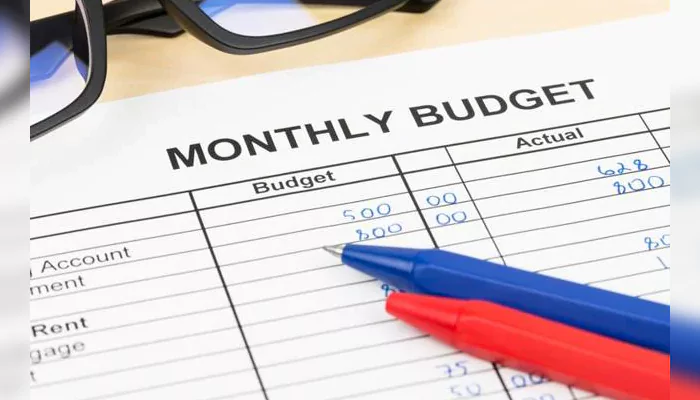One Prompt a Day to Make Life Easier: Let AI Help You Budget Your Monthly Expenses
- Sayan Paul
- 6 months ago
- 5 minutes read

Say goodbye to Excel sheets and end-of-month math marathons. Let AI handle it all, while you breathe easy.
We’ve all been there, spending money here and there, and then suddenly wondering, "Wait, where did it all go?" By the 20th of every month, it’s the same old story: “Phir se wohi... bees din mein salary khatam wala problem.” And yes, people say make a budget, track expenses, use Excel sheets - but come on, who actually enjoys that? It feels like a full-time job, and most of us just don’t have the time or energy for it. However, AI can actually help you here. With just one smart prompt, tools like ChatGPT can create a monthly budget plan that’s practical, easy to follow, and totally customized to your lifestyle. From rent and ration to weekend chai-samosa expenses, AI can lay it all out for you in seconds.

But like everything with AI, it all comes down to how you prompt. A vague input won’t help you much, while a clear, well-structured prompt is definitely your shortcut to a stress-free, balanced budget.
What All to Include in Your Prompt
Let’s say you’re a 25-year-old man living alone in Delhi. You earn Rs 45,000 a month, pay rent, cook sometimes, order in often, and love weekend outings with friends. By the third week, your bank balance looks like it’s seen better days. You want a budget, but not the restrictive kind.
To get that through AI, here’s what your prompt should include:
Your monthly income (after tax/deductions)
Your city and lifestyle (living alone, shared flat, etc.)
Fixed expenses like rent, bills, EMIs, or subscriptions
Spending habits - how often you eat out, travel, and shop online
Your savings goal - how much you want to save every month
Any financial responsibilities - like sending money home or paying insurance
Your budgeting preference - strict vs flexible, weekly vs monthly
Any non-negotiables, such as gym fees, OTT subscriptions, or weekend plans
*The more personal you get, the better your budget will reflect real life. Be detailed, and you’ll get a plan that’s actually doable.
The Perfect Prompt Example: Because “Create a Budget Plan for Me” Just Won’t Cut It
Typing “Create a budget plan for me” sounds easy, but it won’t really get you far. You’ll end up with a cookie-cutter budget that doesn’t know you well. If you want something that actually works for your life, your prompt needs to be smarter and more specific.
Example
You are an expert financial consultant with over 20 years of experience in personal finance for urban Indian millennials. I want you to create a practical monthly budget plan for me.
I’m a 25-year-old man living alone in Delhi. My take-home salary is Rs 45,000 per month. I pay Rs 12,000 in rent and around Rs 2,000 on electricity, WiFi, and other bills. I usually cook 3-4 times a week but order food frequently. I go out with friends most weekends and spend on cafes, metro rides, and occasional shopping. I also have a Netflix subscription and a gym membership I won’t compromise on.
I’d like to save at least Rs 5,000 a month, but without giving up everything I enjoy. Please divide my expenses into essentials, lifestyle, and savings, and suggest small tweaks I can make to stay financially balanced without feeling restricted.

*Feel free to tweak this prompt to match your own lifestyle, income, and priorities.
A Few Extra Things to Know Before You Write That Prompt
Before you hit “send” on your budgeting prompt, here are a few less obvious but super useful things to keep in mind.
- Use markdown prompting to highlight what matters
If there are parts of your lifestyle you really don’t want to compromise on, highlight them using bold (use *) in your prompt. This draws the AI’s focus and ensures those non-negotiables aren’t ignored.
- Don’t write it like one big block
Break your prompt into short, structured sections. It’s easier for the AI to process and respond accurately when your thoughts are organized.
- Be ready to follow up
Treat your first prompt like a conversation starter. Once you get the AI’s response, follow up with clarifications or tweaks. If you want to switch from a monthly to a weekly budget, just ask.
- Mention what you’ve tried and failed at
If you’ve already attempted budgeting methods that didn’t work (like tracking apps or manual notebooks) mention that in your prompt. AI can suggest alternatives you haven’t thought of yet.
- Don’t ask for “perfect”
Instead of asking for the ideal plan, ask for the one that’s realistic and sustainable. That way, the AI focuses on what fits your life, not just textbook theory.
Happy budgeting!












